Last week, 63 percent of Oklahoma voters said no to a proposal that would have allowed recreational marijuana use for people over 21. This means that the recreational use of marijuana is still not legal in Oklahoma, even though the state has already approved over 2,800 medical marijuana licenses and has more than 400 dispensaries in its capital city alone.
Although the state has embraced medical marijuana, with ten percent of its residents owning a medical marijuana card, most voters rejected the legalization of recreational use. This is a setback for advocates hoping to see the state expand its access to marijuana beyond medicinal purposes.
Despite the growing support for marijuana legalization among younger Republicans, many conservative-leaning states have blocked efforts to expand legalization beyond the twenty-one states that currently allow recreational use. This compares to the thirty-eight states that approve of medical use for adults.
Oklahoma voters approved the growth of medical marijuana in 2018, but since then, the Republican governor and other politicians have pushed back against the development of recreational use. Law enforcement groups have also expressed concern over the potential adverse effects of legalization.
Proponents of legalization have argued that it could bring in tax revenue for the state. However, low turnout during the vote may have hindered their efforts. Despite this setback, advocates of marijuana legalization are likely to continue pushing for change in the state.
What do Oklahoma Leaders & Marijuana Advocates Say?
Ryan Kiesel, a spokesperson for the Yes on 820 campaign:
“This election isn’t about whether or not Oklahoma will have marijuana. Marijuana is here. It’s about what we’re going to do about it.”
Damion Shade, executive director of Oklahomans for Criminal Justice Reform for Black Wall Street Times:
“The criminalization of marijuana has disproportionately burdened Black communities in Oklahoma. I am a Black Oklahoman who recognizes that the 50-year so-called ‘war on drugs’ has been an abject failure deliberately designed to criminalize and target Black communities. The criminalization of marijuana was a big part of that perverse strategy. Ending Oklahoma’s prohibition on marijuana is an important step towards eliminating racial disparities in this state.”
Jeffrey Zucker, co-founder and President of Green Lion Partners:
“Today’s decision in Oklahoma is heartbreaking, especially considering how many challenges this bill faced before it got to the ballot and how much work advocates put in. We have a long way to go to undo the damage of the war on drugs, especially in a state where more than 4,500 people are arrested annually for cannabis possession.”
Michelle Tilley, a Yes on 820 campaign spokesperson:
“We didn’t get State Question 820 across the finish line tonight, but the fact remains that marijuana legalization is not a question of ‘if;’ it’s a question of ‘when.”
What’s Happening in Other States?
Recreational use proposals for marijuana were rejected by voters in several states, including Arkansas, South Dakota, and North Dakota, all of which are led by Republican governors. However, Missouri stood out as an exception, where voters approved a constitutional amendment to allow recreational use in November.
In Maryland, residents who are over 21 years of age will be able to possess up to 1.5 ounces of marijuana starting in July following the approval of a state referendum in November. The measure also provided a way for those who were arrested for possession to expunge their criminal records and those who were imprisoned for simple possession to have their sentences reconsidered.
Additionally, the measure established a state business aid fund that supports small businesses, including those owned by women and people of color. Some people in these states view marijuana legalization as harmful to their traditions and way of life. Despite this opposition, the recreational marijuana industry continues to grow in states where it is legal, creating jobs and generating revenue for both state and local governments.
How Does the NBA’s Decision to Remove the Marijuana Ban Affect the Battle for Marijuana Legalization in Oklahoma?
The NBA’s recent decision to remove the marijuana ban could have a significant impact on the battle for marijuana legalization in Oklahoma. As the players union negotiates marijuana ban, it sets a precedent for other professional sports leagues and could influence public opinion on the issue.
The Oklahoma Bureau of Narcotics is Firmly Against Legalization
Less than two weeks before the recent vote in Oklahoma, the state’s Bureau of Narcotics claimed that multiple medical marijuana farms were linked to organized crime factions involved in sex trafficking and prostitution. The agency stated that they have closed down over eight-hundred cannabis farms linked to organized crime.
It’s important to note that the state’s drug-enforcement agency has been against medical marijuana for a while, claiming that it poses “extreme challenges” that criminal enterprises seek to exploit. According to national law enforcement agencies, Oklahoma has become a significant source of illicit-market cannabis sold across state lines. Due to these concerns, many political figures in the state, including Governor Stitt and U.S. Senator James Lankford, were against the recent adult-use measure.
The state’s Republican Party, the Oklahoma Farm Bureau, and the Oklahoma Cattlemen’s Association opposed the measure. It’s worth noting that xenophobia may have played a role in the election. Some law enforcement and political lobbies suggested that medical marijuana could influence certain outsiders to come in and endanger Oklahoma residents. It’s a reach, but it notably influenced voters to say no.
What’s Next for Oklahoma’s Recreational Market?
Oklahoma, known for being business-friendly and laissez-faire, has seen a recent slowdown in the cannabis industry after a surge of businesses opened following the 2018 approval of medical marijuana. As of February 8, 2022, the state had 7,078 licensed growers, 2,877 dispensaries, and 369,468 registered patients, the highest per capita in the country.
However, officials imposed a two-year moratorium on new business licenses in August 2021, so there won’t be any new businesses for at least 18 months. Despite claims of struggling due to oversupply and a shrinking patient base, Oklahoma residents bought over $786 million of cannabis in 2021, generating over $120 million in tax revenue for the state.
Some observers question whether voters will prioritize legalizing adult-use cannabis since medical marijuana is so widely available. However, advocates warn that rejecting adult-use legalization could lead to a crackdown on the state’s medical marijuana industry. Critics, especially in rural areas, are concerned about quality-of-life issues like rising crime and violence.
While the cannabis industry in Oklahoma has slowed, it remains a significant part of the state’s economy, and the debate over adult-use legalization continues.

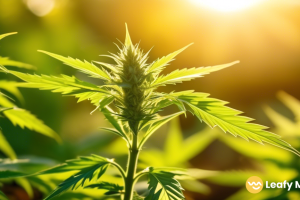
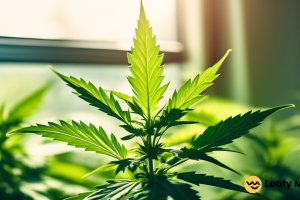
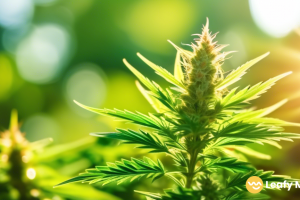




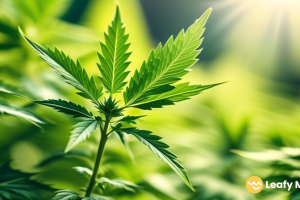
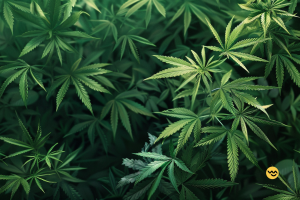
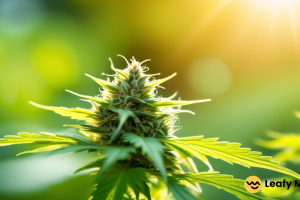
Leave a Reply